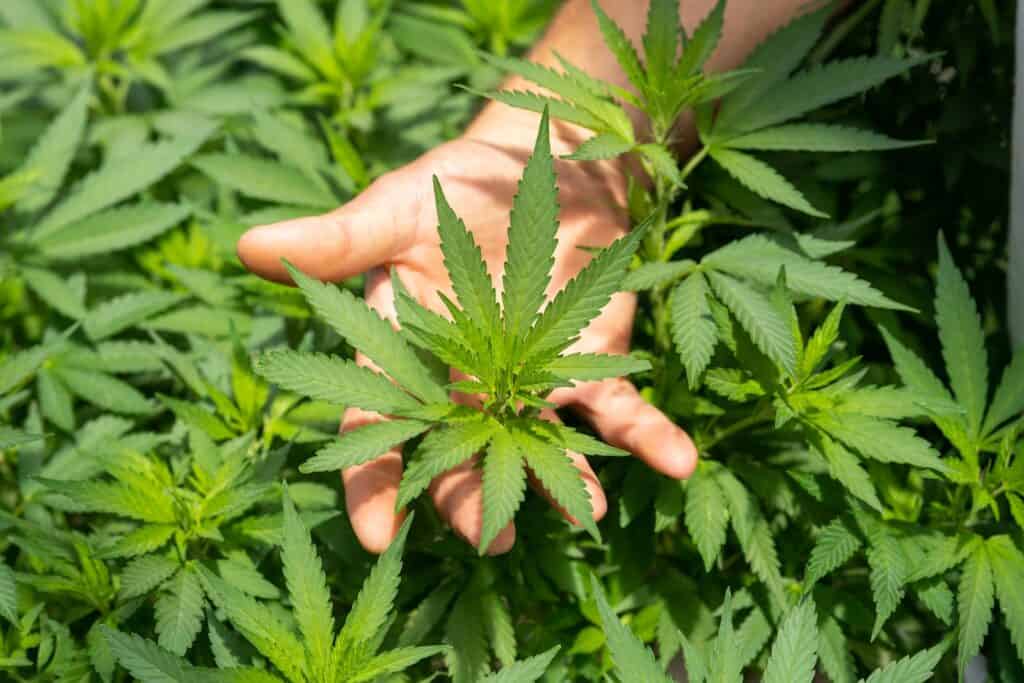
What are flavonoids and why are they important in CBD?
What Are Flavonoids?
Flavonoids are the compounds responsible for the pigmentation or colour of plants.
As of the moment, there are around 6,000 known varieties of flavonoids, some are found in many different plants, while some can only be found in certain species.
Flavonoids are also known as phytonutrients – the chemicals that help protect plants from germs, bugs, fungi, toxins, radiation from UV rays, and other threats.
What Are the Benefits of Flavonoids?
Aside from the fact that flavonoids are beneficial to plants, researchers also discovered that flavonoids have many potential health benefits to humans.
Humans and animals are not capable of producing flavonoids, but they have to consume them to enjoy their health benefits.
Flavonoids are said to help humans stay healthy and help in preventing diseases like cancer, asthma, and heart disease.
Research conducted showed that flavonoids have the potential in lowering high blood pressure. While another research showed the flavonoid intake may help in reducing the risk of type 2 diabetes mellitus.
The 6 Major Subclasses of Flavonoids
According to Oregon State University, flavonoids are classified into 12 major subclasses based on chemical structures, six of which are of dietary significance.
The six major subclasses of flavonoids with dietary significance are: anthocyanidins, flavan-3-ols, flavonols, flavones, flavanones, and isoflavones.
Anthocyanidins
Anthocyanidins are a subclass of flavonoids that are present in plant-based foods, such as red, blue, and purple berries; red and purple grapes; and red wine.
These flavonoids are known to have antioxidant properties and are known to support heart health.
Flavan-3-ols
This is the subclass of flavonoids that are found in many fruits and vegetables, including sweet potatoes, mangoes, tomatoes, eggplant, teas (particularly white, green, black, and oolong), and cocoa-based products, grapes, berries, and apples.
These flavonoids have been reported to show several health benefits by acting as an antioxidant, anticarcinogen, cardio preventive, antimicrobial, antiviral, and neuroprotective agents.
Flavonols
Flavanols are a subclass of flavonoids that are commonly found in onions, scallions, kale, broccoli, apples, berries, and teas. These flavonoids are said to help in lowering blood pressure and improving blood circulation.
Some of the most common flavonols include quercetin (found in apples), kaempferol (grapefruit), myricetin (black tea), and rutin (quince).
Flavones
Flavones include compounds such as apigenin and luteolin. Some of the common food sources are parsley, thyme, celery, and hot peppers.
Flavones serve as natural pesticides in plants and are known to help in reducing inflammation in humans.
Flavanones
Flavanones can be commonly found in citrus fruits and juices such as oranges, grapefruits, and lemons. These flavonoids are said to be anti-inflammatory, antiviral, and antimicrobial.
Isoflavones
Isoflavones are mostly found in soybeans, soy foods, and other legumes. There are studies conducted to know more about the possibility of preventing bone, hormone, and cardiovascular problems.
The Most Common Flavonoids in CBD
Of the more or less 6,000 flavonoids known, there are more than 20 flavonoids found in the cannabis plant family. The most common flavonoids in cannabis are cannflavin, apigenin, anthocyanin, kaempferol, luteolin, silymarin, and quercetin.

Cannflavin
Is a flavonoid that is only exclusively found in cannabis plants. There are 3 types of cannflavin: A, B, and C – which are responsible for giving cannabis its green color. This flavonoid is currently being studied for its painkiller, anti-inflammatory, and antioxidant potential.
Apigenin
It is a flavonoid under the flavone subclass. It is known to have anti-anxiety, anti-diabetic, and anti-inflammatory properties, neuroprotective qualities, and cancer-fighting effects.

Anthocyanin
Anthocyanin is the flavonoid responsible for the bright red-orange to blue-violet colours in many fruits and vegetables, and for the purple colour in some cannabis plants. It is being studied for its potential in preventing cardiovascular disease and some types of cancers, and in enhancing memory, and help prevent age-related declines in mental functioning.
Kaempferol
Is a flavonoid under the subclass flavonol and a known antioxidant. Several studies have already been conducted and they’re focusing on the beneficial effects of dietary kaempferol in reducing the risk of chronic diseases, especially in its chemo-preventative potential.
Luteolin
Luteolin is another flavonoid under the flavone subclass and it is abundant in vegetables, fruits, and herbs like carrot, cabbage, artichoke, tea, celery, and apple. It is known for its potential anti-inflammatory properties, anti-tumor qualities, and cardia function improvement.
Silymarin
A flavonoid commonly found in milk thistle, between 65-80%. It is known to have antioxidant, antiviral, and anti-inflammatory properties.
Milk thistle has been used traditionally to treat liver and gallbladder disorders, promote breast milk production, prevent and treat cancer and even protect the liver from alcoholic liver disease, non-alcoholic fatty liver disease, hepatitis, and even liver cancer.
Quercetin
Is another flavonoid under the subclass flavonol. It is known to have antioxidant and anti-inflammatory properties that might help in alleviating swelling, blood sugar, and preventing heart disease, and killing cancer cells.
The Importance of Flavonoids in CBD
Flavonoids are important in CBD because they are beneficial in creating and enhancing the “entourage effect” along with cannabinoids and terpenes.
Entourage Effect, as mentioned in the previous post, is the synergistic process where the cannabinoids, terpenes, and flavonoids in CBD products are working together to boost, enhance, and reinforce each other’s properties resulting in an increase in the product’s overall effect.

For example, if a certain CBD product is rich in the flavonoid antigen and the terpene limonene which both have cancer-preventive properties, it means that these two compounds along with other cannabinoids present in the CBD product will be working together making their potential anti-cancer properties even stronger.
However, be reminded that not all CBD oils contain flavonoids. Full-spectrum and broad-spectrum CBD oils are the ones that contain flavonoids, terpenes, and other cannabinoids, while isolates only contain CBD and no other ingredients.
Final Thoughts On Flavonoids
Flavonoids are not only important in plants, but also in humans and animals because of their potential health benefits. Though they’re abundant in many fruits and vegetables, they’re also present in cannabis plants.
If you want to maximize the entourage effect of the CBD products you are consuming, make sure to choose full-spectrum and broad spectrum CBD products, and not isolates.
And as always, get your CBD products from a trusted and reliable source to ensure quality and authenticity.
NOTE:
All information presented here at Cornerstone Hemp is purely for informational purposes only. It is NOT intended to diagnose, treat, cure or prevent any medical condition. As always, please consult your doctor first.
